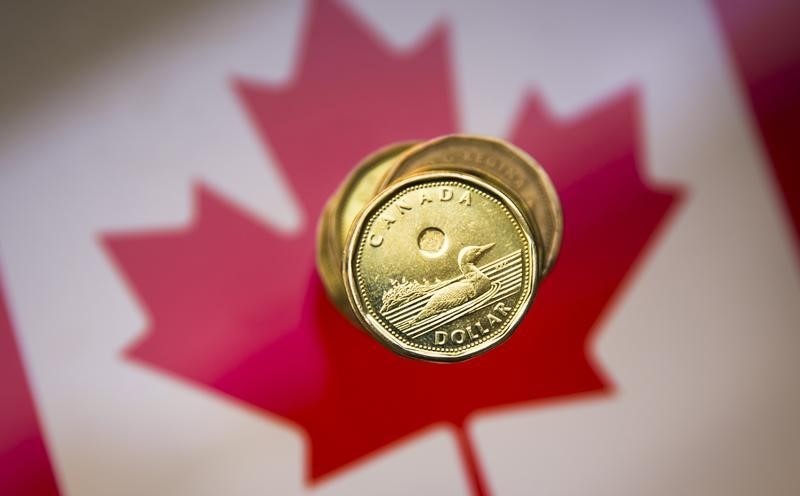* Oil futures erase gains on renewed worries about oversupply
* Domestic wholesale trade jumps 1.2 pct in May
* Canadian 10-year government yield hits five-week high
By Richard Leong
July 23 (Reuters) - The Canadian dollar fell against the greenback on Monday as concerns about excess oil supply overshadowed worries about growing tensions between the United States and Iran and evidence of solid domestic economic growth.
Prices of oil, a major Canadian export, fell 0.5 percent in New York, reversing an earlier gain of 1.5 percent. bond yields climbed in step with other major sovereign yields in the wake of a Reuters report that said the Bank of Japan is debating whether to scale back its easy monetary policy. concerns about the renegotiation of the North American Free Trade Agreement (NAFTA) also bogged down the loonie, analysts said.
"Incrementally the news on NAFTA for Canada is getting worse," said Ilya Gofshteyn, FX and global macro strategist at Standard Chartered (LON:STAN) Bank in New York.
U.S. President Donald Trump said last Wednesday that Washington might hammer out a trade deal with Mexico and then do a separate one with Canada later, while Canada's ambassador to the United States still saw a trilateral agreement. a spike in Canadian wholesale trade in May, also helped bolster the loonie. looks like GDP is coming relatively firm," said Mark Chandler, head of Canadian rates strategy at RBC Dominion Securities in Toronto.
Chandler projected Canadian gross domestic product likely grew at a 2.5 percent to 3.0 percent pace in the second quarter.
Canadian wholesale trade grew 1.2 percent in May, Statistics Canada said on Monday.
The upbeat figure followed strong readings on inflation and retail sales released last week. loonie registered a 0.1 percent gain against the greenback last week after Trump on Thursday and Friday complained about a strong greenback and the rise in U.S. interest rates.
The U.S. dollar was up 0.2 percent against its Canadian counterpart at C$1.3172 CAD= after falling as low as C$1.3111, according to Reuters data.
Meanwhile, the yield on 10-year Canadian government debt CA10YT=RR rose over 5 basis points to 2.231 percent after touching 2.232 percent, which was the highest since June 15, Reuters data showed.
The Bank of Japan, facing stubbornly low inflation, is in unusually active discussions, with changes to its interest-rate targets and stock-buying program on the table, people familiar with the central bank's thinking told Reuters. BOJ's current policy, adopted in mid-2016, consists mainly of negative short-term interest rates, keeping the 10-year yield around zero percent and buying about 6 trillion yen worth of stocks through exchange-traded funds (ETFs).
Earlier Monday, Japanese 10-year government yield JP10YT=RR jumped to 0.093 percent, its highest since Feb. 2.
<^^^^^^^^^^^^^^^^^^^^^^^^^^^^^^^^^^^^^^^^^^^^^^^^^^^^^^^^^^^ EXCLUSIVE-BOJ to debate policy change in July to make its stimulus sustainable - sources
